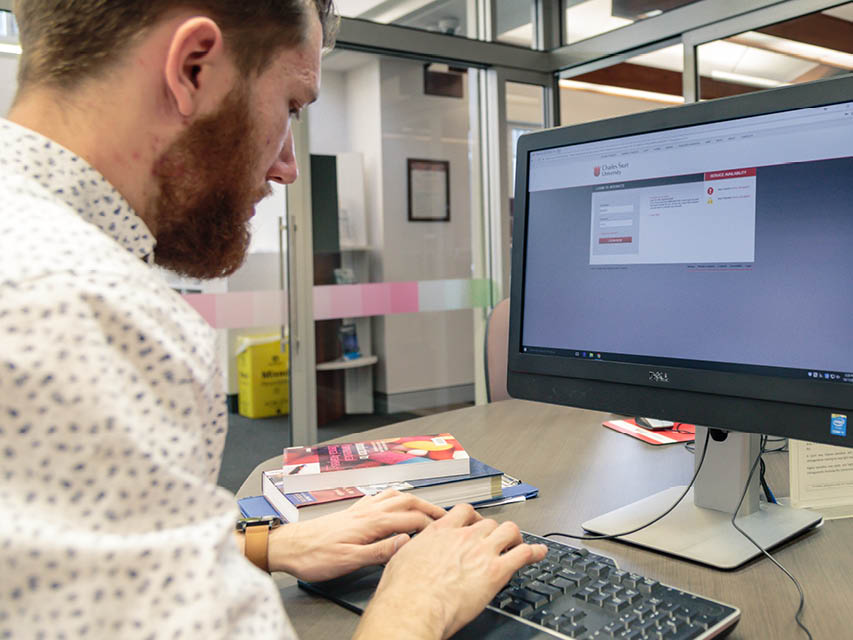Short courses in university make upskilling accessible. Led by experts, they can give you a whole host of benefits.
Like what? Like these…

1. Skill enhancement
Short courses in university are an excellent way to hone specific skills quickly. Moreover, these programs are designed to focus intensively on particular areas of expertise, ensuring you gain practical, relevant knowledge.
2. Flexibility
Short courses fit around your life. Designed to fit into the busy schedules of working professionals, most are available online and part-time, so you can upskill while you work (and have a life!). It’s qualifying without compromise.


3. Cost-effectiveness
Short courses are more affordable than full-degree programs, so they’re a more cost-effective way to enhance your skills. Additionally, you could secure a scholarship or grant to help cover the cost of your course.
4. CV enhancement
Completing a short course often comes with the benefit of earning a certificate from a recognised institution. These credentials can enhance your professional profile and credibility, demonstrating to employers and peers that you are committed to continuous learning.


5. Further education pathway
Short courses typically provide a pathway into more extensive degree programs. You get a taste of a subject area, and if you want to study further in your field, you’ll typically get credit for the short course(s) you’ve completed – meaning you finish your degree sooner.
6. Industry relevance
Many short courses are developed with industry experts, ensuring the curriculum is aligned with current market needs. Consequently, the skills and knowledge you gain directly apply to your professional environment, enhancing your job performance and career prospects.


7. Market responsiveness
The job market is constantly changing. So adaptability is a good trait to have. Short courses allow you to acquire new skills and knowledge quickly in response to evolving industry demands. This ability to adapt and stay current is also invaluable for future career moves.
8. Personal fulfilment
Lifelong learning is a fulfilling endeavour; short courses provide a manageable way to keep learning. They enable you to achieve personal learning goals, which is good for your career but also brings a sense of personal accomplishment.


9. Networking
Universities attract diverse students, so you can learn from different cultures and perspectives. This cultural exposure can broaden your worldview, enhance your communication skills, and foster greater empathy and understanding in your personal and professional interactions. Moreover, these courses’ networking opportunities allow you to connect with peers and industry experts, potentially opening doors to new career opportunities.
10. Access to resources
Enrolling in a short course gives you access to the extensive resources of a university, including libraries, research facilities and academic support services. These resources can significantly enhance your learning experience, providing valuable materials and support to deepen your understanding of the subject matter.


11. Digital literacy
We live in the digital age, so being comfortable with tech is crucial. Most short courses include training on digital tools and platforms, enhancing your digital literacy. This improves your current job performance and prepares you for future technological advancements in your field.
12. Specialised knowledge
Short courses allow you to delve into niche areas that might not be covered in broader degrees or cutting-edge topics emerging in your field. This specialised knowledge can make you an expert in a particular area, increasing your value to employers.


13. Soft skills enhancement
In addition to technical skills, short courses will also help develop your soft skills. Think of things like communication, leadership and teamwork. These interpersonal skills are essential in any workplace.
14. Immediate professional benefits
One of the significant advantages of short courses is the immediate applicability of the skills and knowledge you gain. Unlike more extended programs that may take years to complete, short courses equip you with tools and techniques that you can start using in your job right away.


15. Trial without commitment
Short courses offer a low-risk way to explore new fields or subjects. If you’re considering a career change or want to test the waters in a particular area, a short course provides an opportunity to do so without the long-term commitment of a degree program. So, with the experience of a short course, you know what’s what and can make more informed decisions about your future.
16. Improved job satisfaction
By gaining new skills and knowledge, you can enrich your current job role, making your work more engaging and satisfying. Consequently, you’ll feel more motivated in your professional life.


17. Enhanced creativity
Short courses in university can boost your creativity by exposing you to new ideas and ways of doing things. You’ll also learn about your field’s latest techniques and theories, fostering your own innovative thinking. So you can approach problems from different angles and develop creative solutions that benefit your organisation.
Short courses in university: your options
Charles Sturt has four types of short courses from which you can choose.

Microcredentials
Online subjects that take just eight weeks to complete. Moreover, you can stack them towards a graduate certificate.

Single subject study
Take one subject over one session. Most are open entry, so you don’t have to have any previous experience or qualifications to apply.

Graduate certificate
Take the first step to postgrad study and bag a qualification in just 26 weeks. Moreover, earn credit towards a master’s.
Not sure which short course is right for you?
Chat with our team, and they’ll help you find the next step on your career path.


You must be logged in to post a comment.